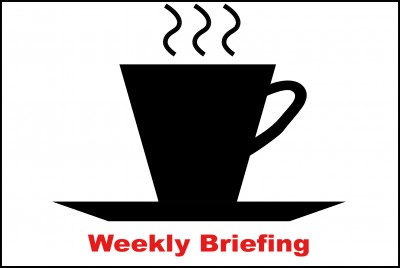Weekly Briefing: Return to Normality in July
The Austrian government has announced the reduction of restrictions as of July 1. Three weeks later, some more relaxations could be implemented. Are the coming weeks the last ones of the pandemic? Find out more about this week's developments.
 Take five minutes to catch up on this week’s essential news! / Picture: © Wikimedia Commons / Filip Nohe [CC BY-SA 2.0 (https://creativecommons.org/licenses/by-sa/2.5/deed.de)], modified and edited
Take five minutes to catch up on this week’s essential news! / Picture: © Wikimedia Commons / Filip Nohe [CC BY-SA 2.0 (https://creativecommons.org/licenses/by-sa/2.5/deed.de)], modified and edited
Covid-19: Austria Looks into a Bright Future
The Austrian government has announced further relaxations of the Covid-19 restrictions for July. If the infection rate allows, even further easings are expected and announced for the end of July.
These positive developments can be, at least partially, explained by the good vaccination progress. 2 million people in Austria are already fully immunized.
Since the in-school testing for children and teenagers is not feasible during the summer vacation, the so-called "living room" tests can now also be picked up by children aged 12 and older. For children below that age there is no testing requirement.
With regard to traveling, the EU Member Countries have agreed on the framework for the European Green Passport. If everything goes according to plan, somewhat equal prerequisites for traveling will apply in the EU.
Politicians from all over the World in Vienna
At a bilateral meeting in Vienna, Czech President Miloš Zeman and his Austrian counterpart Alexander Van der Bellen have agreed on the necessity to include Russia in Europe and demand negotiations with the Kreml.
The Swiss Foreign Minister, Ignazio Cassis, and his Austrian counterpart, Alexander Schallenberg, have signed a strategic partnership agreement, which aims at strengthening the bilateral relations even further.
In her visit to Vienna, Lithuanian Prime Minister Ingrida Šimonytė and Austria's Chancellor Kurz share very similar concerns regarding Belarus. They both demand the immediate release of political prisoners.
The South Korean President Moon Jae-in has met his Austrian counterpart Alexander Van der Bellen and the Austrian Chancellor Sebastian Kurz in Vienna to discuss the Covid-19 pandemic and a strategic partnership between South Korea and Austria.
The Czech and Austrian capital cities have agreed on a cooperation agreement that will cover information exchange in the fields of digitalization, sustainable development, and transport management. Prague's Mayor Zdeněk Hřib has traveled to Vienna to meet Mayor Michael Ludwig.
Europa Forum and GLOBSEC Forum
At the 25th Europa Forum Wachau, Austrian Foreign Minister Alexander Schallenberg spoke out in favor of finding creative approaches to bind the Western Balkan states to the EU even before a possible EU accession.
At a working meeting and at the GLOBSEC Forum in Bratislava, Slovak Prime Minister Eduard Heger and Austrian Chancellor Sebastian Kurz discussed, among other things, the importance of EU's reconstruction fund and how aid should be distributed.
What Else Happened This Week?
The European Commission has taken legal action against Austria and other Member States that fail to comply with EU law. In the case of Austria, several allegations have been put forward.
At a bilateral meeting between the Maltese Foreign Minister Evarist Bartolo and his Austrian counterpart Alexander Schallenberg in Malta, both politicians spoke out in favor of increased support for the Libyan population that has long suffered from the hostile situation in the North African country.
Vienna will host the Film Festival at the Viennese City Hall for the 30th time this year. After months of restrictions and numerous cancelled events, the City of Vienna plans a Film Festival that will try to go above and beyond.



